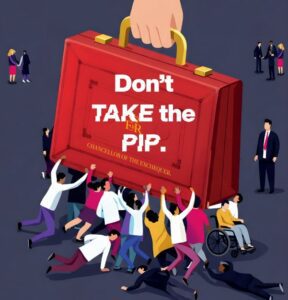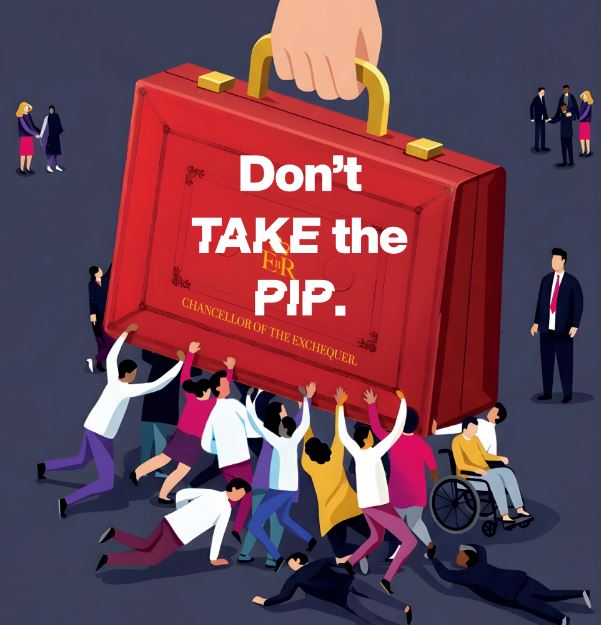 Epilepsy Action is demanding a U-turn from the government on the disability benefits cuts announced earlier this year, which are leaving people “terrified” and threatens to put them in debt.
Epilepsy Action is demanding a U-turn from the government on the disability benefits cuts announced earlier this year, which are leaving people “terrified” and threatens to put them in debt.
The organisation launched the ‘Don’t take the PIP’ campaign today (21 May), during National Epilepsy Week, with Epilepsy Action chief executive Rebekah Smith delivering the first ‘Don’t take the PIP’ letter to Chancellor of the Exchequer Rachel Reeves yesterday.
The campaign is asking the UK public to join Epilepsy Action to get involved in highlighting this with their MP.
Epilepsy Action is warning that cuts could mean around 71,000 people with epilepsy currently claiming PIP will lose on average £500 per month. It added that this is in the “best case scenario” when the person claiming has a full-time job.
This is because living with a disability is estimated to cost, on average, £1,000 a month more than living without a disability, the charity said.
The government’s new points system risks leaving people with a fluctuating condition like epilepsy worse off, as the assessments often don’t recognise the severity of the symptoms.
The charity warned that people who score two points across a number of different categories could be left without essential support, while needing assistance across many different activities.
Epilepsy Action has also highlighted that people with epilepsy face barriers in getting jobs, with only 42% of people with epilepsy in employment. Unemployment levels are due to the severity of people’s epilepsy or because of negative attitudes from employers.
The ‘Don’t take the PIP’ campaign also stresses that those with epilepsy who are employed also face the second-highest disability pay gap in the UK, earning 26.9% less than their non-disabled counterparts.
“It’s hard enough”
Rebekah said: “It’s National Epilepsy Week, but it doesn’t feel like a time for celebration. Since welfare reforms have been announced, we’ve heard from many people who are terrified they’ll lose the support that keeps them afloat.
“People with a disability need an extra £1,000 a month on average. For people with epilepsy, it’s hard enough to stay afloat. Hard enough to get employed. Hard enough to get PIP now.
“Epilepsy has the second-highest disability pay gap, at 26.9%. People with the condition are already way worse off than their colleagues – and that’s if they even have a job. They still get discriminated against when trying to find or stay in employment. Too many employers are not willing to give people with epilepsy reasonable adjustments. Many have a bias against the condition, so won’t hire them even if they were perfectly capable of doing the job.
“If these reforms go ahead as they are, people with epilepsy risk losing the support they need, and have to get into debt, just to cover basic expenses. We know the government has said it wants to help people into work. We don’t think this the way to do it. They have said there will be personalised help for people with a disability to get into work. What does this look like? Does it tackle employers’ attitudes, who don’t want to hire people with epilepsy?
“If you don’t like seeing people treated unfairly, then stand beside people with epilepsy. Get involved in our campaign and tell your MPs. 1 in 100 people in this country have epilepsy. It could happen to anyone at any time. Join us in telling this government: “don’t take the PIP.”
For more information on the campaign and how to get involved, visit the Epilepsy Action website.

DON'T TAKE THE PIP
Many people with epilepsy already struggle to stay afloat.
Now even the little support they get could be taken away.
We won’t stand for this.




